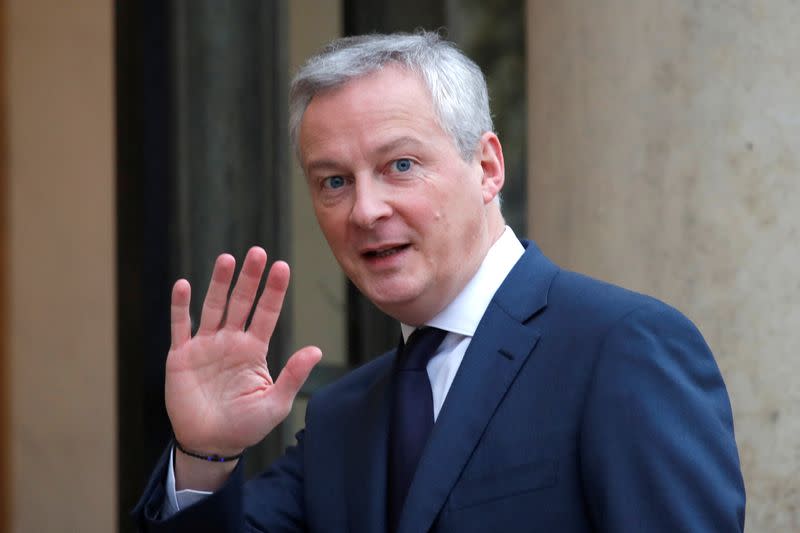EDF hit by cap on power prices, nuclear reactor closures
By Benjamin Mallet and Geert De Clercq
PARIS (Reuters) -The French government said on Thursday that it had ordered state-owned utility EDF to sell more of its cheap nuclear power to smaller competitors in order to limit the increase of electricity prices in France.
EDF said the measure could cost it up to 8.4 billion euros and dropped its earnings guidance, while the utility also lowered its nuclear production forecast after technical problems forced it to extend the outage of a fifth nuclear reactor.
The energy and environment ministry said in a joint statement EDF will have to increase by 20 terawatt-hour (TWH) to 120 TWH the volumes of nuclear power it sells to its smaller competitors this year in order to keep market prices down.
The price at which EDF will have to sell that electricity will be increased to 46.2 euros per megawatt-hour from the current 42 euros/MWH, but that price is still below EDF's actual production costs and far below current market prices of more than 100 euros per MWH.
Finance Minister Bruno Le Maire said in an interview with French daily Le Parisien on Thursday that without the new price cap new measures, power prices would jump by more than 35% instead of 4 % on Feb. 1 and added that the European Commission had approved the French government's plan.
Le Maire also said there will be no catch-up to the capped power prices in 2023 as the state and EDF will absorb the cost of this measure.
The ministries said that the additional volumes will be available to consumers via their suppliers under terms to be set out by the government and that suppliers will have to fully pass on this advantage to consumers, under close supervision by the energy regulator.
"We thank EDF for making this effort in the interest of the public, but we will help EDF," Environment Minister Barbara Pompili said on LCI television.
EDF said in a statement that the impact of the measure on its 2022 core earnings is estimated at about 8.4 billion euros based on Dec. 31, 2021 market prices and at about 7.7 billion euros based Jan. 12 market prices.
The utility dropped its guidance for 2022 earnings, saying that the financial consequences for EDF cannot be precisely determined at this stage as the final impact on core earnings will depend on the market prices over the implementation period.
The new measure is bad news for EDF, which has long asked the government to scrap its obligation to sell part of its nuclear output to competitors at below-market prices. It says that this so-called ARENH mechanism limits its capacity to invest and subsidises its competitors.
The mechanism was put in place in order to compensate for EDF's dominant market position in France.
In a separate statement, EDF also lowered its 2022 nuclear output forecast to 300–330 terawatt-hour from 330-360 TWH after the detection of welding faults at its 1300 MW Penly 1 nuclear reactor would force it to extend a maintenance outage of that reactor.
Four other, more recent, 1500 MW reactors have already been halted following the discovery of similar welding defects.
"A control program is under development on the entire nuclear fleet," EDF said.
EDF, the world's biggest operator of nuclear plants, produces about three quarters of France's electricity in 56 nuclear reactors.
(Reporting by Benjamin Mallet; Writing by Geert De Clercq; Editing by Sandra Maler)

 Yahoo Finance
Yahoo Finance 

